Table of content
Zongzi, the iconic pyramid-shaped rice dumplings wrapped in bamboo leaves, are a beloved culinary tradition celebrated during the Dragon Boat Festival across Asia. These savory or sweet treats are filled with glutinous rice, often paired with ingredients like mung beans, chestnuts, and, most crucially, marinated meat. The star of savory zongzi is undeniably the meat—typically pork, chicken, or occasionally beef—which must be marinated to perfection to achieve a balance of tenderness, flavor infusion, and aromatic complexity. Yet, for home cooks and seasoned chefs alike, the question persists: How long should meat be marinated to elevate zongzi from ordinary to extraordinary? This article delves into the science, culture, and practical techniques behind marinating meat for zongzi, exploring variables like meat type, marinade ingredients, and environmental factors to ensure your dumplings are a feast for the senses.
The Role of Marination in Zongzi Preparation
Marination is not merely a preliminary step in zongzi-making; it is the alchemical process that transforms raw meat into a flavor-packed centerpiece. The primary goals of marinating are threefold:
- Tenderization: Breaking down tough muscle fibers to ensure the meat becomes melt-in-your-mouth tender after steaming or boiling.
- Flavor Penetration: Infusing the meat with aromatic seasonings, spices, and umami-rich ingredients.
- Preservation: Inhibiting bacterial growth (though refrigeration is still critical) and enhancing shelf life.
For zongzi, the stakes are particularly high. Unlike grilled or pan-seared meats, where charring or caramelization can mask imperfections, the meat in zongzi is steamed within a tightly wrapped parcel. This cooking method demands meticulous preparation, as there is no opportunity to adjust seasoning or tenderness mid-process. A poorly marinated piece of meat can result in dry, bland, or tough zongzi—a disappointment for festival celebrations or family gatherings.
Marinating Time: The Golden Window
The optimal marinating time for zongzi meat hinges on several factors, including the type of meat, cut, marinade composition, and storage conditions. Below is a detailed breakdown of guidelines for common proteins:
Pork: The Classic Choice
Pork, particularly fatty cuts like pork belly or shoulder, is the most traditional meat for zongzi. Its marbling ensures juiciness, while the collagen-rich connective tissue breaks down during steaming, yielding a luxurious texture.
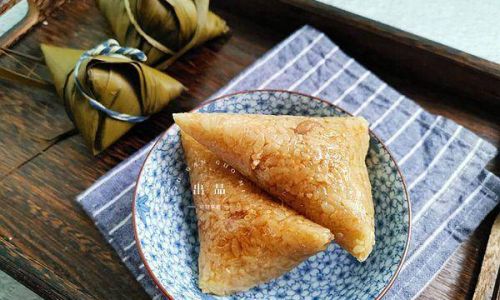
- Recommended Marinating Time: 8–24 hours (overnight marination is ideal).
- Why This Duration?
- Fatty Cuts: Fat acts as a flavor carrier but requires time to absorb seasonings. Overnight marination allows the fat to meld with soy sauce, rice wine, five-spice, and other ingredients.
- Collagen Breakdown: Enzymes in the marinade (e.g., pineapple juice or ginger) and salt gradually soften collagen, reducing cooking time and enhancing tenderness.
- Flavor Depth: Pork’s mild taste benefits from prolonged exposure to umami-rich ingredients like fermented bean paste or dried shrimp.
Pro Tip: For leaner cuts like pork tenderloin, reduce marinating time to 4–6 hours to prevent the meat from becoming overly salty or mushy.
Chicken: A Leaner Alternative
Chicken, often boneless thigh meat, is a popular choice for those seeking a lighter zongzi. Its lower fat content necessitates a shorter marination window to avoid dryness.
- Recommended Marinating Time: 2–6 hours.
- Why This Duration?
- Leanness: Chicken lacks the fat to protect against over-marination. Exceeding 6 hours can cause the meat to absorb excess salt, resulting in a harsh, metallic taste.
- Quick Absorption: Chicken’s delicate fibers absorb marinades rapidly. A shorter soak allows flavors like oyster sauce, garlic, and white pepper to permeate without overwhelming the meat.
Pro Tip: Use a vacuum-sealed bag or plastic wrap to massage the marinade into the chicken, accelerating flavor penetration.
Beef: For Bold Flavors
Though less common in traditional zongzi, beef—especially brisket or flank steak—is gaining popularity for its robust taste.
- Recommended Marinating Time: 12–36 hours.
- Why This Duration?
- Tough Muscle Fibers: Beef’s dense structure requires extended marination to tenderize. Acidic ingredients like vinegar or citrus juice help break down proteins.
- Umami Enhancement: Beef pairs well with savory marinades featuring soy sauce, hoisin, or mushroom powder, which deepen over time.
Pro Tip: For aged or grass-fed beef, reduce acidity in the marinade to prevent excessive softening of the meat’s texture.
Lamb: A Regional Delicacy
In certain regions, lamb is used in zongzi, offering a gamey richness that complements spicy or herbaceous marinades.
- Recommended Marinating Time: 6–12 hours.
- Why This Duration?
- Fat Distribution: Lamb’s intermuscular fat (marbling) melts during steaming, but over-marination can render it greasy.
- Flavor Balance: Strong spices like cumin, coriander, and chili require moderate time to meld without overpowering the meat.
Pro Tip: Add yogurt or buttermilk to the marinade to tenderize lamb while imparting a subtle tanginess.
Factors Influencing Marinating Time
While the above guidelines provide a foundation, flexibility is key. Adjust marinating times based on:
-
Marinade Ingredients:
- Acidic Components (e.g., vinegar, lemon juice): Accelerate tenderization but can toughen meat if left too long. Limit exposure to 4–6 hours for delicate proteins like chicken.
- Enzymatic Elements (e.g., pineapple, kiwi, ginger): Break down proteins efficiently; use sparingly and monitor closely to avoid mushiness.
- Salt Content: High-sodium marinades draw moisture from meat; balance with sugars or fats to prevent dryness.
-
Meat Cut and Thickness:
- Thinner slices (e.g., pork belly strips) marinate faster than thick cubes (e.g., beef brisket).
- Cubed meat marinates unevenly; flatten larger pieces for consistent flavor.
-
Temperature:
- Refrigeration (32–40°F/0–4°C): Slows bacterial growth but requires longer marinating times.
- Room Temperature (68–72°F/20–22°C): Speeds up flavor absorption but poses food safety risks. Never exceed 2 hours.
-
Aging of Meat:
Fresh meat absorbs marinades faster than aged or frozen-thawed varieties, which may already have compromised cell structures.
Step-by-Step Guide to Marinating Zongzi Meat
-
Preparation:
- Trim excess fat (retain a thin layer for flavor).
- Cut meat into uniform pieces (2×2-inch cubes for pork; 1×3-inch strips for chicken).
-
Marinade Mixing:
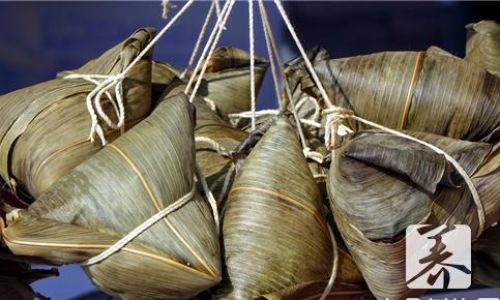
- Combine base ingredients (soy sauce, rice wine, sugar) with aromatics (garlic, ginger, scallions).
- Add umami boosters (fermented bean paste, dried mushrooms, shrimp) and optional acids/enzymes.
-
Marinating Process:
- Place meat and marinade in a non-reactive container (glass, ceramic, or zip-top bag).
- Ensure meat is fully submerged; remove air pockets for even coating.
-
Storage:
Refrigerate immediately. Use a weighted plate or vacuum sealer to compress the meat and marinade.
-
Timing:
Set a timer to avoid over-marination. For overnight marinades, prepare in the evening for lunchtime zongzi the next day.
Common Mistakes to Avoid
-
Over-Marinating:
- Lean meats like chicken or turkey become dry and salty beyond 6 hours.
- Enzymatic marinades (e.g., pineapple) can turn meat to mush within hours.
-
Under-Marinating:
Tough cuts like beef brisket remain chewy if marinated for less than 12 hours.
-
Using Reactive Containers:
Aluminum or metal bowls react with acidic marinades, causing off-flavors.
-
Ignoring Temperature Control:
- Marinating at room temperature for >2 hours risks bacterial contamination (e.g., Salmonella, E. coli).
Advanced Techniques for Enthusiast Cooks
-
Velveting:
A Chinese technique where meat is coated in cornstarch and baking soda before marinating. This creates a protective layer, sealing in juices and accelerating tenderization.
-
Dry Brining:
Rub meat with salt and sugar 12–24 hours before adding wet marinade. This enhances flavor retention and juiciness.
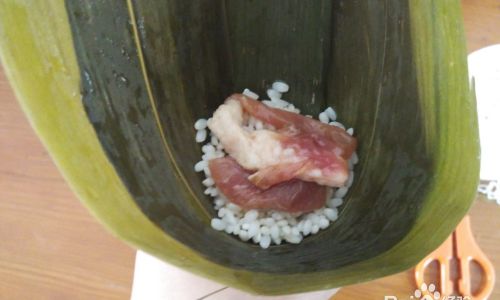
-
Sous-Vide Marination:
Vacuum-seal meat with marinade and cook at low temperatures (e.g., 140°F/60°C) for 2–4 hours. The result is intensely flavored, perfectly tender meat.
Cultural Significance and Regional Variations
The marination process for zongzi meat is deeply rooted in regional customs and historical practices. In southern China, where Dragon Boat Festival traditions originated, pork marinades often include fermented black beans, rice wine, and five-spice powder—a nod to the area’s historical trade routes and agricultural abundance. In contrast, northern Chinese zongzi may feature simpler marinades with soy sauce and scallions, reflecting a preference for cleaner flavors.
In Southeast Asia, particularly in Malaysia and Singapore, Hokkien-style zongzi (bak chang) incorporate marinated pork belly with a decadent marinade of dark soy sauce, oyster sauce, and candied winter melon. The extended marination time (up to 48 hours) allows the meat to absorb the sweet-savory glaze, resulting in a caramelized exterior when steamed.
Troubleshooting Marination Issues
-
Meat Tastes Too Salty:
Rinse briefly under cold water before wrapping in zongzi. Reduce salt in future marinades.
-
Meat Is Tough:
Next time, marinate longer, use a tenderizing enzyme, or switch to a fattier cut.
-
Flavor Is One-Dimensional:
Layer flavors by adding fresh herbs (cilantro, mint) or toasted spices (Sichuan pepper, star anise) during the final hour of marination.
Conclusion: The Symphony of Time and Taste
Marinating meat for zongzi is a dance of patience and precision. While guidelines provide a roadmap, the true art lies in adapting to variables like meat quality, marinade composition, and personal preference. Whether you favor the traditional richness of pork belly marinated for 24 hours or the delicate balance of a 4-hour chicken marinade, the goal remains the same: to create a zongzi that honors tradition while delighting the palate.
As you embark on your zongzi-making journey, remember that marination is more than a step—it is a testament to the care and craftsmanship invested in every bite. Experiment, taste, and refine your techniques, and soon, your zongzi will earn a coveted spot at festivals, family tables, and beyond. After all, in the world of zongzi, time is not just an ingredient; it’s the secret spice that transforms the ordinary into the extraordinary.
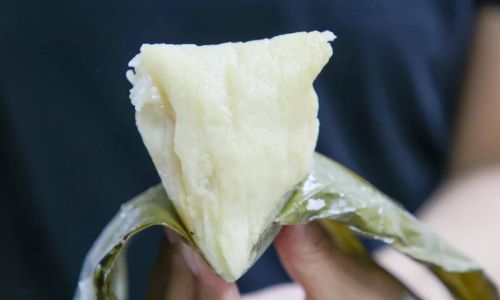
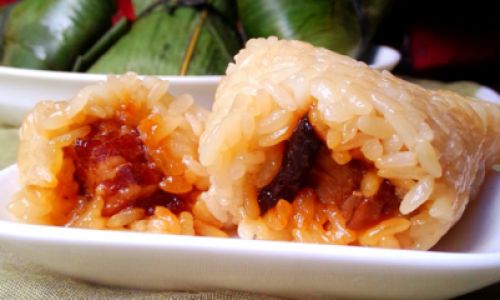



0 comments